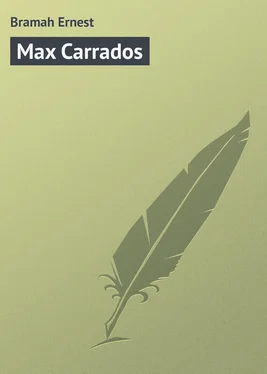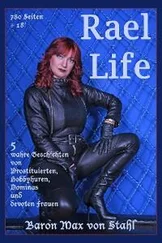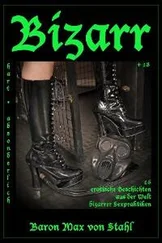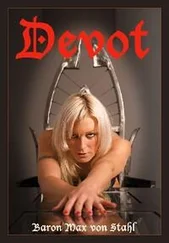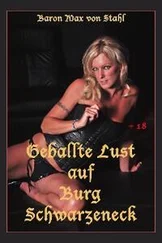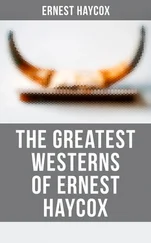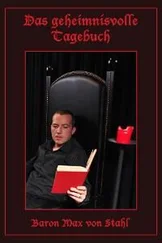Ernest Bramah - Max Carrados
Здесь есть возможность читать онлайн «Ernest Bramah - Max Carrados» — ознакомительный отрывок электронной книги совершенно бесплатно, а после прочтения отрывка купить полную версию. В некоторых случаях можно слушать аудио, скачать через торрент в формате fb2 и присутствует краткое содержание. Жанр: Классический детектив, foreign_detective, foreign_prose, на английском языке. Описание произведения, (предисловие) а так же отзывы посетителей доступны на портале библиотеки ЛибКат.
- Название:Max Carrados
- Автор:
- Жанр:
- Год:неизвестен
- ISBN:нет данных
- Рейтинг книги:4 / 5. Голосов: 1
-
Избранное:Добавить в избранное
- Отзывы:
-
Ваша оценка:
- 80
- 1
- 2
- 3
- 4
- 5
Max Carrados: краткое содержание, описание и аннотация
Предлагаем к чтению аннотацию, описание, краткое содержание или предисловие (зависит от того, что написал сам автор книги «Max Carrados»). Если вы не нашли необходимую информацию о книге — напишите в комментариях, мы постараемся отыскать её.
Max Carrados — читать онлайн ознакомительный отрывок
Ниже представлен текст книги, разбитый по страницам. Система сохранения места последней прочитанной страницы, позволяет с удобством читать онлайн бесплатно книгу «Max Carrados», без необходимости каждый раз заново искать на чём Вы остановились. Поставьте закладку, и сможете в любой момент перейти на страницу, на которой закончили чтение.
Интервал:
Закладка:
“There is a suggestive line that was not touched at the inquiries,” he admitted. “Hutchins has been a saving man all his life, and he has received good wages. Among his class he is regarded as wealthy. I daresay that he has five hundred pounds in the bank. He is a widower with one daughter, a very nice-mannered girl of about twenty. Mead is a young man, and he and the girl are sweethearts – have been informally engaged for some time. But old Hutchins would not hear of it; he seems to have taken a dislike to the signalman from the first and latterly he had forbidden him to come to his house or his daughter to speak to him.”
“Excellent, Louis,” cried Carrados in great delight. “We shall clear your man in a blaze of red and green lights yet and hang the glib, ‘greasy’ signalman from his own signal-post.”
“It is a significant fact, seriously?”
“It is absolutely convincing.”
“It may have been a slip, a mental lapse on Mead’s part which he discovered the moment it was too late, and then, being too cowardly to admit his fault, and having so much at stake, he took care to make detection impossible. It may have been that, but my idea is rather that probably it was neither quite pure accident nor pure design. I can imagine Mead meanly pluming himself over the fact that the life of this man who stands in his way, and whom he must cordially dislike, lies in his power. I can imagine the idea becoming an obsession as he dwells on it. A dozen times with his hand on the lever he lets his mind explore the possibilities of a moment’s defection. Then one day he pulls the signal off in sheer bravado – and hastily puts it at danger again. He may have done it once or he may have done it oftener before he was caught in a fatal moment of irresolution. The chances are about even that the engine-driver would be killed. In any case he would be disgraced, for it is easier on the face of it to believe that a man might run past a danger signal in absentmindedness, without noticing it, than that a man should pull off a signal and replace it without being conscious of his actions.”
“The fireman was killed. Does your theory involve the certainty of the fireman being killed, Louis?”
“No,” said Carlyle. “The fireman is a difficulty, but looking at it from Mead’s point of view – whether he has been guilty of an error or a crime – it resolves itself into this: First, the fireman may be killed. Second, he may not notice the signal at all. Third, in any case he will loyally corroborate his driver and the good old jury will discount that.”
Carrados smoked thoughtfully, his open, sightless eyes merely appearing to be set in a tranquil gaze across the room.
“It would not be an improbable explanation,” he said presently. “Ninety-nine men out of a hundred would say: ‘People do not do these things.’ But you and I, who have in our different ways studied criminology, know that they sometimes do, or else there would be no curious crimes. What have you done on that line?”
To anyone who could see, Mr Carlyle’s expression conveyed an answer.
“You are behind the scenes, Max. What was there for me to do? Still I must do something for my money. Well, I have had a very close inquiry made confidentially among the men. There might be a whisper of one of them knowing more than had come out – a man restrained by friendship, or enmity, or even grade jealousy. Nothing came of that. Then there was the remote chance that some private person had noticed the signal without attaching any importance to it then, one who would be able to identify it still by something associated with the time. I went over the line myself. Opposite the signal the line on one side is shut in by a high blank wall; on the other side are houses, but coming below the butt-end of a scullery the signal does not happen to be visible from any road or from any window.”
“My poor Louis!” said Carrados, in friendly ridicule. “You were at the end of your tether?”
“I was,” admitted Carlyle. “And now that you know the sort of job it is I don’t suppose that you are keen on wasting your time over it.”
“That would hardly be fair, would it?” said Carrados reasonably. “No, Louis, I will take over your honest old driver and your greasy young signalman and your fatal signal that cannot be seen from anywhere.”
“But it is an important point for you to remember, Max, that although the signal cannot be seen from the box, if the mechanism had gone wrong, or anyone tampered with the arm, the automatic indicator would at once have told Mead that the green light was showing. Oh, I have gone very thoroughly into the technical points, I assure you.”
“I must do so too,” commented Mr Carrados gravely.
“For that matter, if there is anything you want to know, I dare say that I can tell you,” suggested his visitor. “It might save your time.”
“True,” acquiesced Carrados. “I should like to know whether anyone belonging to the houses that bound the line there came of age or got married on the twenty-sixth of November.”
Mr Carlyle looked across curiously at his host.
“I really do not know, Max,” he replied, in his crisp, precise way. “What on earth has that got to do with it, may I inquire?”
“The only explanation of the Pont St Lin swing-bridge disaster of ’75 was the reflection of a green bengal light on a cottage window.”
Mr Carlyle smiled his indulgence privately.
“My dear chap, you mustn’t let your retentive memory of obscure happenings run away with you,” he remarked wisely. “In nine cases out of ten the obvious explanation is the true one. The difficulty, as here, lies in proving it. Now, you would like to see these men?”
“I expect so; in any case, I will see Hutchins first.”
“Both live in Holloway. Shall I ask Hutchins to come here to see you – say to-morrow? He is doing nothing.”
“No,” replied Carrados. “To-morrow I must call on my brokers and my time may be filled up.”
“Quite right; you mustn’t neglect your own affairs for this – experiment,” assented Carlyle.
“Besides, I should prefer to drop in on Hutchins at his own home. Now, Louis, enough of the honest old man for one night. I have a lovely thing by Eumenes that I want to show you. To-day is – Tuesday. Come to dinner on Sunday and pour the vials of your ridicule on my want of success.”
“That’s an amiable way of putting it,” replied Carlyle. “All right, I will.”
Two hours later Carrados was again in his study, apparently, for a wonder, sitting idle. Sometimes he smiled to himself, and once or twice he laughed a little, but for the most part his pleasant, impassive face reflected no emotion and he sat with his useless eyes tranquilly fixed on an unseen distance. It was a fantastic caprice of the man to mock his sightlessness by a parade of light, and under the soft brilliance of a dozen electric brackets the room was as bright as day. At length he stood up and rang the bell.
“I suppose Mr Greatorex isn’t still here by any chance, Parkinson?” he asked, referring to his secretary.
“I think not, sir, but I will ascertain,” replied the man.
“Never mind. Go to his room and bring me the last two files of The Times . Now” – when he returned – “turn to the earliest you have there. The date?”
“November the second.”
“That will do. Find the Money Market; it will be in the Supplement. Now look down the columns until you come to British Railways.”
“I have it, sir.”
“Central and Suburban. Read the closing price and the change.”
“Central and Suburban Ordinary, 66-1/2-67-1/2, fall 1/8. Preferred Ordinary, 81-81-1/2, no change. Deferred Ordinary, 27-1/2-27-3/4, fall 1/4. That is all, sir.”
Читать дальшеИнтервал:
Закладка:
Похожие книги на «Max Carrados»
Представляем Вашему вниманию похожие книги на «Max Carrados» списком для выбора. Мы отобрали схожую по названию и смыслу литературу в надежде предоставить читателям больше вариантов отыскать новые, интересные, ещё непрочитанные произведения.
Обсуждение, отзывы о книге «Max Carrados» и просто собственные мнения читателей. Оставьте ваши комментарии, напишите, что Вы думаете о произведении, его смысле или главных героях. Укажите что конкретно понравилось, а что нет, и почему Вы так считаете.
